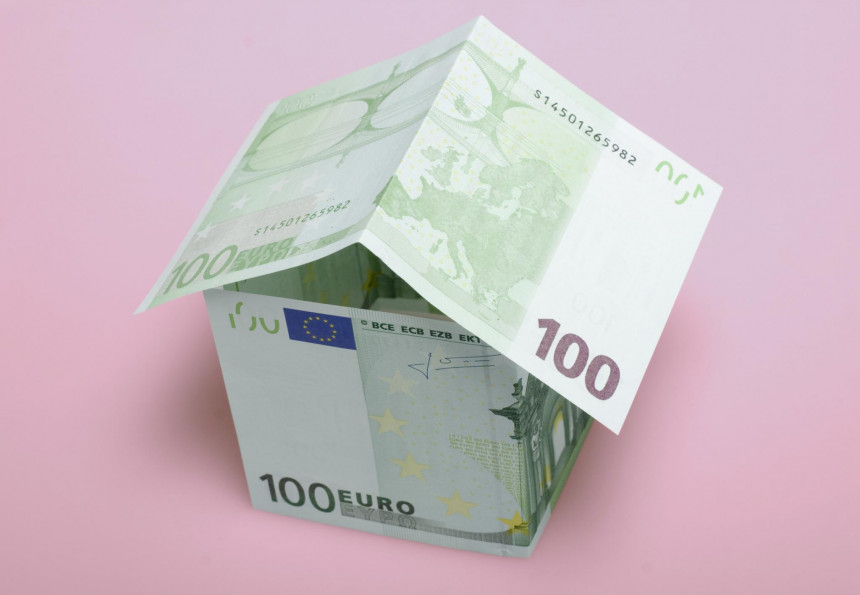The Saeima is drafting a law on how not to solve the immovable property tax problem

Fully committed to combating the effects of the Covid, the coalition still hasn't agreed on a meaningful solution to immovable property tax reform. In order to protect citizens and entrepreneurs from the new cadastral values, which would increase the immovable property tax on real estate, the existing ones will be maintained - until the end of 2025, in the hope that by then the government will come up with something.
Amendments to the State Immovable Property Cadastre Law are necessary because the immovable property tax is linked to cadastral values, but they tend to change depending on the situation in the real estate market - on the transactions that have taken place. Once upon a time, cadastral values were changed every year, then every two years, but now the State Land Service reviews them every four years. The Saeima, in turn, repeatedly postpones the application of the new values. The current cadastral values actually reflect the situation in the real estate market in 2012-2013.
An inexhaustible source of outrage
Last summer, the State Land Service offered the new cadastral value project, and this caused public outrage, as always. Compared to Estonia and Lithuania, Latvian residents have to pay a huge immovable property tax. Municipalities have the right to compensate by granting discounts. However, the system itself is absurd, because people have to practically beg year after year for some officials to remit them and not take away their home. And entrepreneurs are in the same situation. How can you decide to build a factory if the immovable property tax is unpredictable or might double in a year? Another problem is that these cadastral values are linked to transactions in the real estate market. If one neighbor sells a house, apartment or land profitably, the other neighbor has to pay a higher tax on his property. Theoretically, the property is private, but in practice, it still has to be rented from the state, and this rent - immovable property tax - hangs over the heads of the population like the sword of Damocles, because it is constantly being reviewed.
You can't live in the bushes
Why pay immovable property tax at all, if Article 105 of the Constitution clearly states: “Everyone has the right to own property”? The answer is simple - the state needs money and the tax on a house or land is easy to collect. Whether it is fair and proportionate - that is a completely different matter, because people can't live in the bushes. At least not in our latitudes. Last autumn, the coalition discussed various ideas on how to reduce the burden of real estate on the population. Exempt the only property from tax. Collect tax only if the value of the property exceeds 300 thousand. Grant guaranteed discounts to vulnerable groups. There is also a version that the tax calculation could be completely separated from the cadastral values so that both live independent lives. However, no agreement was reached on the discussion of the most appropriate method, and the views of the Ministry of Justice and the Ministry of Finance still differ radically. Therefore, the Saeima has no choice but to use the method practiced in previous years, namely, to postpone the solution of the problem on the merits and to continue to apply the currently valid cadastral values at least until 31 December 2025. Those who have so far been forced to pay an inadequately high tax will continue to do so for years to come. Their only hope is to beg for some additional discount from the municipality.
Wait for the government to think of something
"Until the majority of the Saeima and the government agree on a comprehensive review of the immovable property tax system, which would ensure a fair and tolerable tax burden for citizens and entrepreneurs, the increase of cadastral values should not be allowed," Juris Jurašs, the Chairman of the responsible Legal Commission, explains the solution not to solve anything in the statement of the Saeima.
The draft law plans to instruct the government to find a smarter solution. To prepare and submit to the Saeima for consideration draft laws that ensure reassessment of the amount of state tax related to cadastral value, set housing exemptions from immovable property tax and determine the amount of immovable property tax for forced shared property, as well as commercial areas and agricultural land. However, in previous years the government has not succeeded in doing this with the same task, and even now - when the draft law on postponing the issue arrived in the Saeima, it encountered an immediate warning from the Minister of Finance Jānis Reirs. Assuming a reduction of local government or state budget revenues, other possible sources of income must be found.
The tax increase can't be allowed
"The Ministry of Finance calls for caution regarding the adoption of such regulatory enactments that would lead to an unpredictable reduction of local government budget revenues. At the same time, the Ministry of Finance supports the opinion that the amount of immovable property tax should be proportional to the value of the real estate, however, only after approval of changes in cadastral values can a stable, proportionate and balanced immovable property tax policy be developed.”
The bill to postpone the problem will most likely be passed in the Saeima, because as the only solution at the moment, it is supported by both the coalition partners who are pushing it and the opposition.
The immovable property tax increase in the country can't be allowed, especially in the conditions of Covid.
So the only discussion will be about what to ask the government to do sometime in the future. But in the meantime, the sword of cadastral values will remain hanging where it has been all along.